Being a lawyer employs analytical brain power to a whole new level. One might fathom the stress, diligence, and bookwork as the most difficult part of being a lawyer. However, there is a lot more into play than simply executing the case. Here, we discuss how client expectations shape a lawyer's approach while practicing law. What clients expect from a lawyer today, and how to tackle their demands are all reviewed in detail below.
Why Are Client Expectations Important?
Lawyer employment is expected to expand by 10% between 2021 and 2031, faster than the average for other occupations. The Law 2.0 Conference considers modern client expectations to be the leading challenge in the field today. Therefore, it is important to understand the modern-day requirements to satisfy your client as a lawyer.
A very well-framed case may fail at execution if your communication with the client is lagging. Clients need to understand how effective you are as a lawyer, and this shows in the way you ensure, inform, and prepare your client. It is important to note that before beginning to work on the case, it is important to win your client’s trust. This can only be achieved if you know what they want and if you know how you can provide it. Upcoming attorney conferences share great methods to understand the client’s needs and fulfill them. Below are the insights.
Issues In Client Interactions From A Lawyer's Perspective: Here Are Some Points To Note When Addressing A Client:
Too frequently, the process is centered on determining what legal services may be supplied. Instead of truly listening to what the customer has to say, you're waiting for them to stop talking so you can begin. In addition to being impatient, there are many concerns that conferences claim to be vital for lawyers to keep in mind while addressing client meetings. These can be categorized into communicative concerns and technical ones.
3 Key Communicative Barriers To Look Out For:

- Repetition:
It's easy to become irritated, especially when you've heard a similar narrative from dozens of previous clients. Clients require the opportunity to share their narratives. It is common to jump ahead of the picture that the clients are trying to present to you.
Pro tip: Allow the client to narrate their perspective completely, then probe for questions so that they know that you are really listening. This way, they feel significant and heard.
- Lack of assurance:
If you have a long-term relationship with the client, your interest should be expanded. Clients want you to predict their future demands in addition to listening to what they are saying today. They want you to help prevent issues and capitalize on possibilities rather than simply responding to what has already occurred.
Pro Tip: Ensuring to them that you have their future interests in mind is a great way to eradicate any communicative ambiguity.
- Lack of availability:
Customers who are pleased with how you keep them informed are less likely to feel the need to communicate excessively. Be available when they call you. Clients should expect a response to phone calls and emails within 24 hours.
Pro Tip: Look for ways to use technology to increase communication, such as providing information online via a live issues dashboard or a shared document.
Technical Barriers That Hinder Effective Client Interaction:
- Ambiguity in money matters:
Various clients may have extremely varied pricing views. Some people are particularly price aware, whereas, for others, money is less important than quality. Domestic conveyancing has essentially become commoditized, although high-value practice sectors such as mergers and acquisitions have remained relatively resistant. Nonetheless, all clients respect pricing transparency.
Pro tip: People are always curious about how charges are computed. If you aren't working on a fixed charge, they want a good idea of the anticipated total. They also want timely and accurate billing.
- Technical jargon:
Clients want you to solve their problems, not to teach them the law. There is no need to explain the legal complexities of what you are doing unless they specifically ask you to. Inform them of the situation's practical ramifications and whatever decisions they must make.
Pro Tip: Instead of explaining the legal terms, give them straightforward guidance on the best course of action.
Global conferences for lawyers aim to educate law enthusiasts about modern client demands. The Law 2.0 Conference, for instance, invites experts from around the world to share their cultural perspectives on modern customer demands.
How Has Modernization Impacted Client Demands?

According to 2013 research covering the UK, Australia, and the US, client service is heavily dependent on abilities like listening, explaining, and open communication. According to the research, customers value these abilities so highly that it is likely that they would view an attorney as unsuccessful if they do not give them similar actions in their practice. Upcoming attorney and law conferences today argue that client demands are more person-focused rather than agenda focused.
In order to provide better results for customers, lawyers, and law firms have frequently concentrated on expanding their knowledge and expertise. Nonetheless, due to their attorneys' lack of accessibility, poor communication, lack of empathy, and lack of respect, their clients frequently expressed disappointment in the caliber of their legal counsel. Thus arose the need to satisfy the client’s feelings before satisfying their legal stance.
COVID-19 fundamentally altered society and the legal industry. The legal sector was already undergoing transition prior to the pandemic, driven by a number of factors including financial, demographic, supervisory, technical, and competitiveness. The epidemic has exposed a new type of legal client that is more demanding of their law company and more tech-savvy, picky, familiar with internet research, and used to receiving high levels of customer care elsewhere.
Client Expectations And How To Tackle Them: So, What Should Lawyers Aim For?
Research has consistently demonstrated that too many lawyers fail to give their customers the kind of customer care they need while still providing the legal competence they require. Attending legal conferences is a great way for lawyers to understand client requirements. Experts at Law 2.0 Conference have suggested the following as modern client demands in the field of Law:
- Communication -
Clients are increasingly expecting to be able to contact their attorneys at any given point. Upcoming attorney conferences suggest that an increasing number of customers are opting to speak with their attorneys via web chat, instant messaging, and social networking sites like LinkedIn and Twitter.
Lawyers should know to enhance their communication skills to keep their clients satisfied. Researchers at global Law conferences advise lawyers to keep in mind the three R’s-
- Reach - Reach out to your clients without them having to probe now and then. This ensures that their case is being worked upon.
- React- React to their concerns verbally instead of just noting them. Let them hear that you are actively creating solutions for their case.
- Revise- Revisit the case details with them often to keep them reassured and satisfied with your efforts.
- Collaboration -
The most effective delivery of legal services is expected by today's clients, who also view the process of generating work as being an integral component of the philosophy of the law firm as much as the law itself.
In order to achieve the best results as soon as possible, conferences suggest lawyers bring a wide variety of knowledge to the table in the form of project management, technology, outsourcing, and resourcing.
- Responsiveness -
Let's say your business wishes to draw in younger customers. In such a situation, you need to be aware that they are most likely to anticipate that their legal company will be accessible online, provide a variety of online contact options, and answer questions promptly.
You will be able to set your law practice apart from the competition if you offer what the modern legal customer wants. Researching target areas is a great practice to ensure clients maintain faith in your hard work.
Upcoming attorney conferences aim to spread awareness about modern demands from clients. Above all, lawyers should stay proactive in their approach toward clients. This includes frequent follow-ups, regular back-and-forth correspondence, informing their clients of the process and flow of the cases, and maintaining discretion and humility when dealing with the cost of hearings. With a composed focus on all these issues, lawyers and law firms can keep their clients satisfied and happy.
How Can Law 2.0 Conference Help Lawyers With Keeping Clients Happy?
The majority of customers seeking legal representation want a lawyer they can rely on, and when choosing which law firm to retain, many consumers ask for recommendations from reliable sources. Yet, if they are unable to get a referral, they commonly resort to the internet, where favorable evaluations from random people frequently have a significant effect on who they will choose.
Experts at the Law 2.0 Conference share their views on how Lawyers can maintain their F, and stay abreast of the technological advancements that can boost their practices. So, if you are a lawyer or a law enthusiast, this conference can be a truly enlightening experience for you!

-01.svg)









